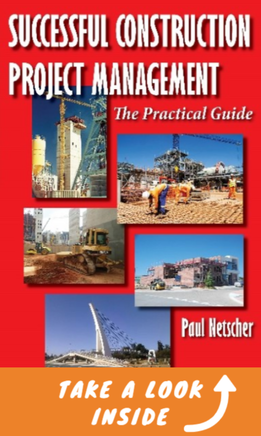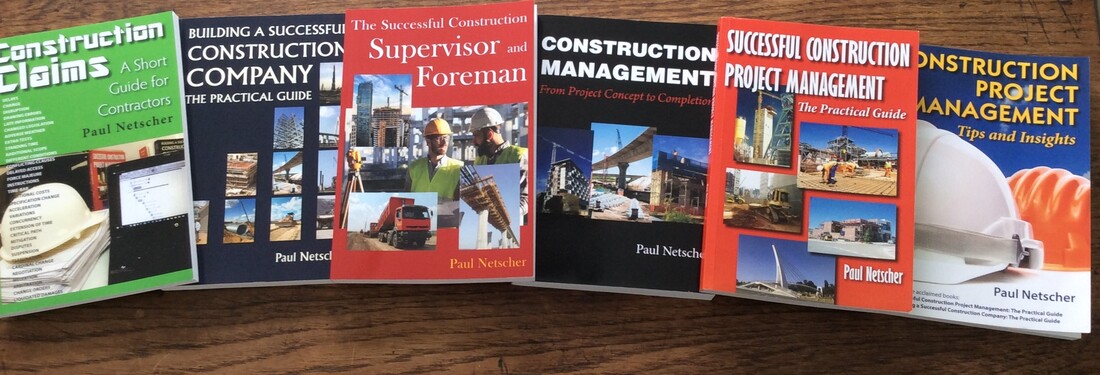How many animals of each type did Moses allow on the ark? What has this got to do with construction?13/2/2019  Image courtesy of njaj at FreeDigitalPhotos.net Image courtesy of njaj at FreeDigitalPhotos.net Well I’m sure many of you answered 2 – of course you’re wrong. A few won’t have read the article, but will be writing to object to the error in the title. Of course those familiar with the Bible know that Moses built the Ark of the Covenant to house the 10 commandments and it wasn’t for animals. While most people have heard the story of the biblical flood and the ark (ship) that Noah built to save 2 of every kind of animal. Those answering the question what has this got to do with construction probably came up with answers like shipbuilding, maybe even quality construction? However, this simple question has been used as a test to demonstrate that many people jump to the answers, or reach conclusions, without fully listening to the question, or thinking through the problem.* What has this got to do with construction? Unfortunately, construction project managers are no different. They start a new project without considering how they reach completion. Some project managers don’t think through the problem and just start construction, following what seems to be a logical sequence. But, is this the shortest and most economical solution. If we want to go from A to Z and aren’t familiar with the destination then we input the start and end addresses into our smart devices or GPS – yes, most of us don’t just start driving hoping we will reach our destination. These devices give us various routes to choose from. Some will be shorter by distance, some are shorter by time, some avoid traffic, and some avoid tolls. We select the best route for us at that time. So it is when we construct our projects, there are a number of paths to follow, and the obvious route might not be the most efficient. Indeed there are all kinds of factors to consider when deciding how to construct the project. This includes, client constraints in the contract document, such as when information and access is available. But, then some project managers are in such a hurry to start construction that they haven’t read the project documents. Then there’s the availability of people, equipment and materials to consider – it’s pointless racing out the starting blocks with your construction if you’re going to be standing in a few weeks waiting for materials, or perhaps the equipment for your chosen construction method isn’t available. Sometimes a new project appears similar to the last project, but is it? There are always differences, different client, different contract document, different details, different project site conditions and different weather. Don’t assume that because the project looks the same, that the same methods of construction will work as well. It’s important then to take time to plan your project before starting, understand the existing information, the available resources, the interrelationship between structures and carefully weigh up the various options. Sure, the client may be in a hurry for construction to start, but taking some extra time at the start of the project to think through what the best solution is, will definitely save time and money later. The lack of fully understanding the question or problem is demonstrated elsewhere on our projects. There’s a problem, say a machine breaks. Instead of asking why or delving deeper, the malfunction is repaired. Then it breaks again – why? Maybe the machine is unreliable, maybe it wasn’t serviced or repaired correctly, maybe the operator caused the problem because they couldn’t operate the machine properly, indeed I’ve even had operators deliberately sabotage equipment. So, you could keep repairing the item and it will break again, because the underlying cause of the fault hasn’t been fixed. Nobody understood the problem! Frequently, we rush to answer a client’s question, a question from an employee or a question from a manager, but in our hurry to answer we haven’t actually listened to the question, or perhaps we rushed our answer (as in the above example) without considering all of the facts – so our answer is wrong, or at best insufficient. Don’t think you know what the question is, rather listen to it properly, then consider an appropriate answer. How arguments start in construction In construction we’re often rushed, stressed and under pressure. There are regularly arguments, claims and counterclaims, many leading to disputes. Some of these are a result of misunderstandings and poor communication caused by one party misinterpreting what the other party said or wanted. Sometimes somebody assumed something or jumped to conclusions. Some of these issues can be avoided if we just take the time to listen, ensuring that we properly understand the other party and provide a logical well thought through reply. Of course it works the other way, and frequently we should check that the other party has understood us correctly. It even goes wrong when we price the construction project – before starting the project Contractors are notorious for not reading project documents when they price the project. They often make the wrong assumptions. They jump to conclusions about what work they will execute and what others are responsible for. They assume more difficult or risky conditions than will be encountered, or hope that everything will be easy. Sometimes contractors win projects with stupidly cheap prices which they’ve calculated based on the wrong information or because they didn’t allow for some work. Other times contractor’s prices are far too high because they’ve assumed items are part of their scope which weren’t. Conclusion – let’s listen more in construction Learn to listen. Don’t be too quick to jump to conclusions. Make sure you understand the issue before drawing a conclusion or deciding on a course of action. Don’t make the wrong assumptions. If you don’t understand something ask. Don’t insert words, names or interpretations into a comment, letter or document – only read or listen to what’s actually said. Did you get the answer correct to the title question? If so well done – you’re obviously a good listener who doesn’t easily jump to conclusions. I’m sure your projects benefit from your clear thinking and calm, logical approach. Do you regularly interrupt people and assume you know what they want to say? Have you incorrectly assumed something, then been embarrassed when you found your assumption was incorrect? *The test was demonstrated in the BBC series Brain Games  This article is adapted from information in the author’s popular books: 'Successful Construction Project Management: The Practical Guide' and 'Building a Successful Construction Company: The Practical Guide' and 'Construction Project Management: Tips and Insights' 'Construction Claims: A Short Guide for Contractors' is another of Paul's useful books. Paul has recently published 'Construction Management: From Project Concept to completion'. Paul's new book: 'Build and Renovate Your Home With Your Eyes Wide Open' is for those with little construction experience who want to build or renovate a house. It's filled with tips and suggestions to help you on your way, ensuring you avoid the pitfalls of home construction projects. These books are available on Amazon and other online book stores. Paul publishes articles regularly on LinkedIn and his website. Paul writes regular articles for other websites, gives lectures, mentors, and is available for podcasts and interviews. Please like and share this article. © 2019 This article is not to be reproduced for commercial purposes without written permission from the author. construction management construction project management
0 Comments
Leave a Reply. |
Archives
June 2024
Note: We welcome genuine comments, especially comments that add additional information to the subject matter in the article. We however reserve the right to remove inappropriate comments, which includes comments that have nothing to do with the subject, comments that include inappropriate language, and comments that are an advertisement for a product or company, or which include an advertising link. Comments must be in English. We will not enter into discussion on why a particular comment was removed.
CategoriesCopyright 2016 - The attached articles cannot be reproduced for commercial purposes without the consent of the author.
The opinions expressed in the attached articles are those of the writer. It should be noted that projects are varied and different laws and restrictions apply which depend on the location of the contractor and the project. It's important that the reader uses the supplied information taking cognisance of their particular circumstances. The writer assumes no responsibility or liability for any loss of any kind arising from the reader using the information or advice contained herein. "I have what I consider some of the best books on construction management."
Books are available from: Amazon.com Amazon.co.uk takealot.com kalahari.com Amazon.in Amazon.de Amazon.fr Amazon.it Amazon.com.au Powell's Fishpond uread bokus Amazon.ca Amazon.es Other retail stores Available in paperback or on Kindle "28 YEARS OF CONSTRUCTION PROJECT MANAGEMENT EXPERIENCE, DEVELOPING SUCCESSFUL CONSTRUCTION PROJECT MANAGERS AND BUILDING SUCCESSFUL CONSTRUCTION COMPANIES"
|




 RSS Feed
RSS Feed




